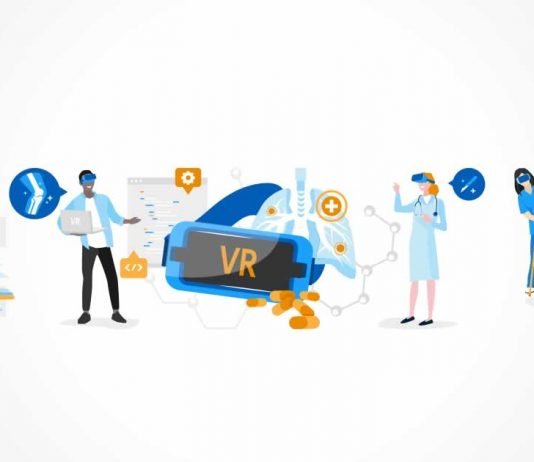The healthcare industry is no different than any other modern 21st-century industry in the sense that it has a hard time keeping up with innovations. However, new trends and technologies are seeping in and it has since had a transformation from being cure-oriented to being preventative, from instinct-based to more and more data-driven.
Health technologies encompass all the devices, vaccines, procedures, medicines, and any system that is designed to streamline day to day operations. Among the most promising health technologies are the implementation of AI, Blockchain, chatbots, and virtual reality adoption. Here we will briefly explore some of these new trends and innovations.
Big data, Precision Medicine
Few people can deny we live in an era of individualism and personalization, and so naturally, we demand solutions that cater to our own specific problems. Healthcare is no exception. Thanks to new technologies like big data and more accurate visual analytics our personal information is processed with greater precision. And this goes a long way to improve communication and patient satisfaction.
Things like medical imaging and genomic sequencing will further help in delivering precision medicine and detailed reports to our patients. Things that were perhaps too overwhelming to track in a patient’s medical history like lifestyle and environmental factors, can now easily be processed and serve to help in predictive healthcare.
This is why there is a huge shift from a cure-oriented to a prevention-oriented approach. We can now determine early risk factors for life-threatening diseases like cancer. Virtually all diagnoses can be improved and the progression of diseases curbed.
Virtual Reality
Virtual reality in medicine isn’t really a new concept and has been around since the early part of the 21st century. However, it has come a long way since its humble origins and is now the pièce de résistance of digital transformation in the healthcare industry. There are a lot of people struggling with chronic pain, and conventional medicine like OxyContin, Vicodin Percocet usually have more adverse effects and can be abused more easily.
But now, people are exploring VR tech as a way to treat anxiety, PTSD, stroke, and even chronic pain. Patients wearing their VR headsets can be motivated to exercise more, while children with autism can better learn how to navigate the world. As for non-patient use, doctors and residents can use virtual-reality simulators to improve their skills and better plan out complicated surgeries. And finally, VR can be a powerful communication channel with which you can more easily communicate and understand your customer’s needs and better engage them with your services and products.
Blockchain Technologies
The use of Blockchain in healthcare isn’t just hype; the exciting part is the digital record keeping, and with it the ledger of transitions that isn’t just transparent but practically impossible to be tampered with. Now some people might be skeptical when it comes to bitcoin, but blockchain technologies are here to stay and will fundamentally change the way other huge sectors operate, some like digital healthcare marketing.
For instance, when you use Blockchain to collect data, all of it will remain with you instead of on servers owned by dubious corporations (looking at you, Facebook). With Blockchain, we will also fix the digital display advertising’s flaws. The Brave blockchain browser is attempting to address this situation with the Basic Attention Token (BAT) so it can break Google’s and Facebook’s monopoly. Advertisers with buy ads using BAT and the users themselves will be compensated as well. Any ad you see about any healthcare product, you will also reap the share of the profits.
In conclusion
Like with any business the goal here is to create a product and service that will improve the lives of their users. And there’s so much to be excited about in the implementation of new technologies in healthcare.
And as new technologies become more and more accessible, so is asserting their importance for critical and context-driven healthcare becoming increasingly important. The key challenge here is not to push the human factor out of healthcare but to implement it in a better way while making the most of emerging technologies.


